Main Second Level Navigation
Breadcrumbs
- Home
- News & Events
- Recent News
- Class of 2T7: What Made You Want To Become A Doctor?
Class of 2T7: What Made You Want To Become A Doctor?
The Temerty Faculty of Medicine's newest MD students from the Class of 2T7 reflect on what made them want to become physicians and what makes them passionate about medicine.

Aljeena Rahat Qureshi
As a kid, I remember how my mom used to fuss over my appearance before our infrequent trips to the doctor's office. It was a special event, almost ceremonial, and we dressed the part. Little did I know, the pomp and ceremony masked a deeper truth – healthcare was not something we could take for granted.
Born to parents who had left their familiar home in Pakistan for the promise of opportunities in Dubai, my family and I found ourselves tied down by the kafala system. This arrangement, akin to a societal contract between the government and its citizens, granted the latter an assured income stream and control over migrant labor, but at the expense of their social and political freedoms. As a direct consequence, we bore the brunt of healthcare expenses, transforming something as necessary as a doctor's visit into a luxury reserved for the times “when we really needed it.” This piqued my curiosity: Why us? Why was this not the same case for my non-expat, Arab peers?
Years later, we packed our bags for Canada. The promise of free healthcare filled me with hope. However, I soon realized that this dream had its own caveats. 'Going to the doctor' was still a different experience for us compared to my Canadian-born peers. While the financial burden was certainly lighter for us, the system failed to account for the cultural and linguistic diversity of those it served. I can still recall the numerous times I had to skip classes in high school, taking on the role of translator for my parents at medical appointments. This, coupled with a cold, impersonal approach to healthcare, often discouraged them from seeking medical help, instilling a sense of distrust and alienation.
My experiences left an indelible mark on me, fueling my decision to major in the Health Sciences. During this journey, I discovered the profound influence physicians can have, beyond providing medical treatment. They can be excellent advocates, standing up for those often overlooked by the system.
Seeking and utilizing healthcare is an extremely vulnerable process from start to finish. As a future physician, I'm eager to foster patient relationships built on trust, respect, and understanding. I can’t wait to learn how to provide care that is culturally safe and inclusive and to advocate for patients in a system that can often feel daunting and impersonal. I want to help dismantle the barriers that once made 'going to the doctor' such an event for us. I want to leverage my understanding of global health to consider broader social determinants that might impact their health and collaborating with a global community of healthcare providers, learning from their experiences, and applying those learnings locally. I also look forward to joining the myriad of trailblazers at the University of Toronto, working tirelessly to shake things up, particularly in the realm of medical education. I envision an education system that is as dynamic and diverse as the world we live in.
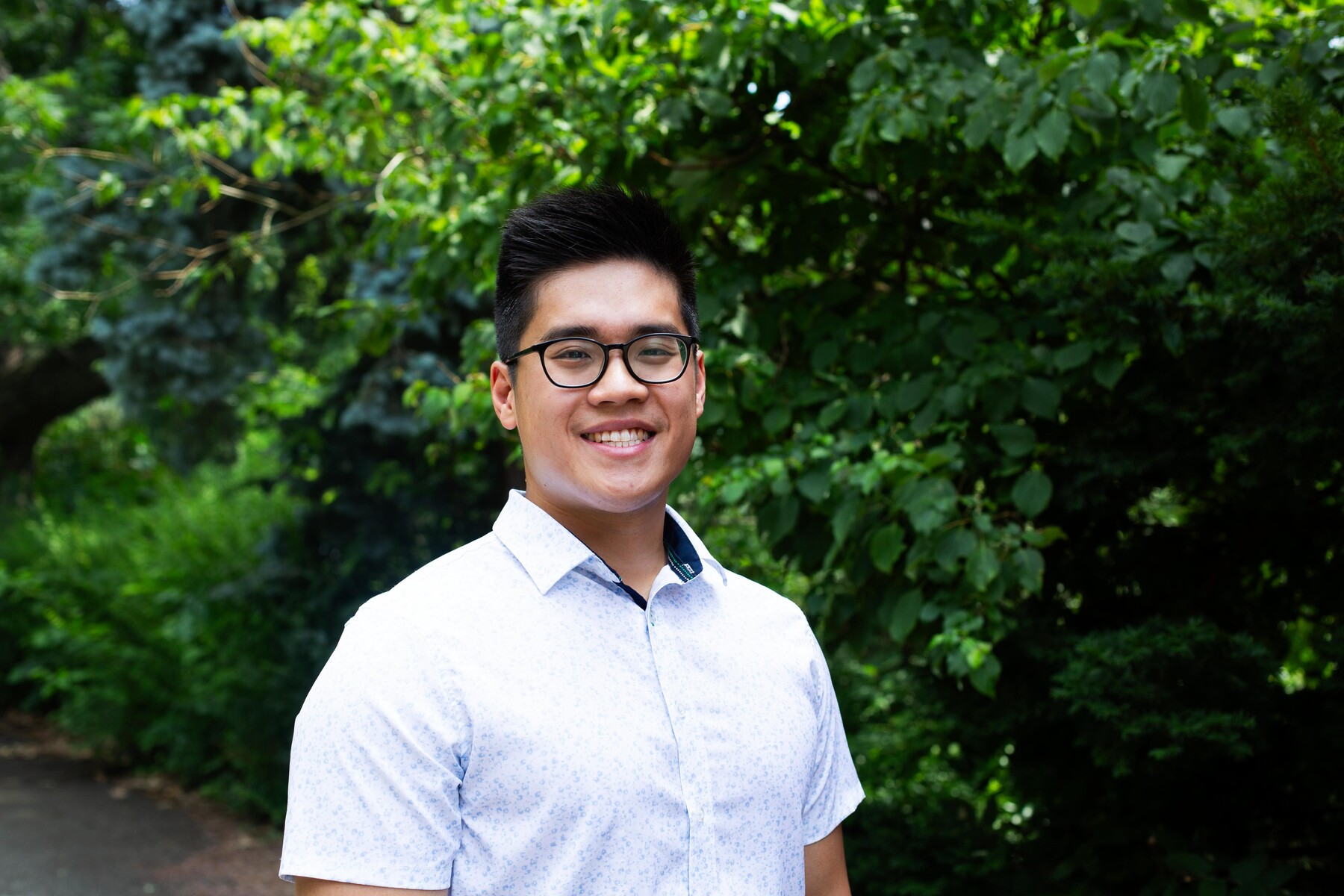
Austin Lam
When I was in grade 5, a friend of mine said that they wanted to be a doctor when they grew up. Until then, I never thought about becoming a doctor – it wasn’t something that I considered at all. But that brief comment from my friend sparked my interest and directed me to explore medicine which has stuck with me. I focused on learning about biological sciences and scientific research throughout my school years and into university. I went on to get my Bachelors and Masters degrees in Microbiology and Immunology and worked as a scientist before applying to medical school.
Along with my passion for science, I’ve volunteered in initiatives addressing housing and food insecurity in Canada, a cause that’s very important to me. I realized my dream career involved a role where I could marry both my passions for scientific research along with serving the needs of underserved communities and make a tangible, meaningful difference in people’s lives.
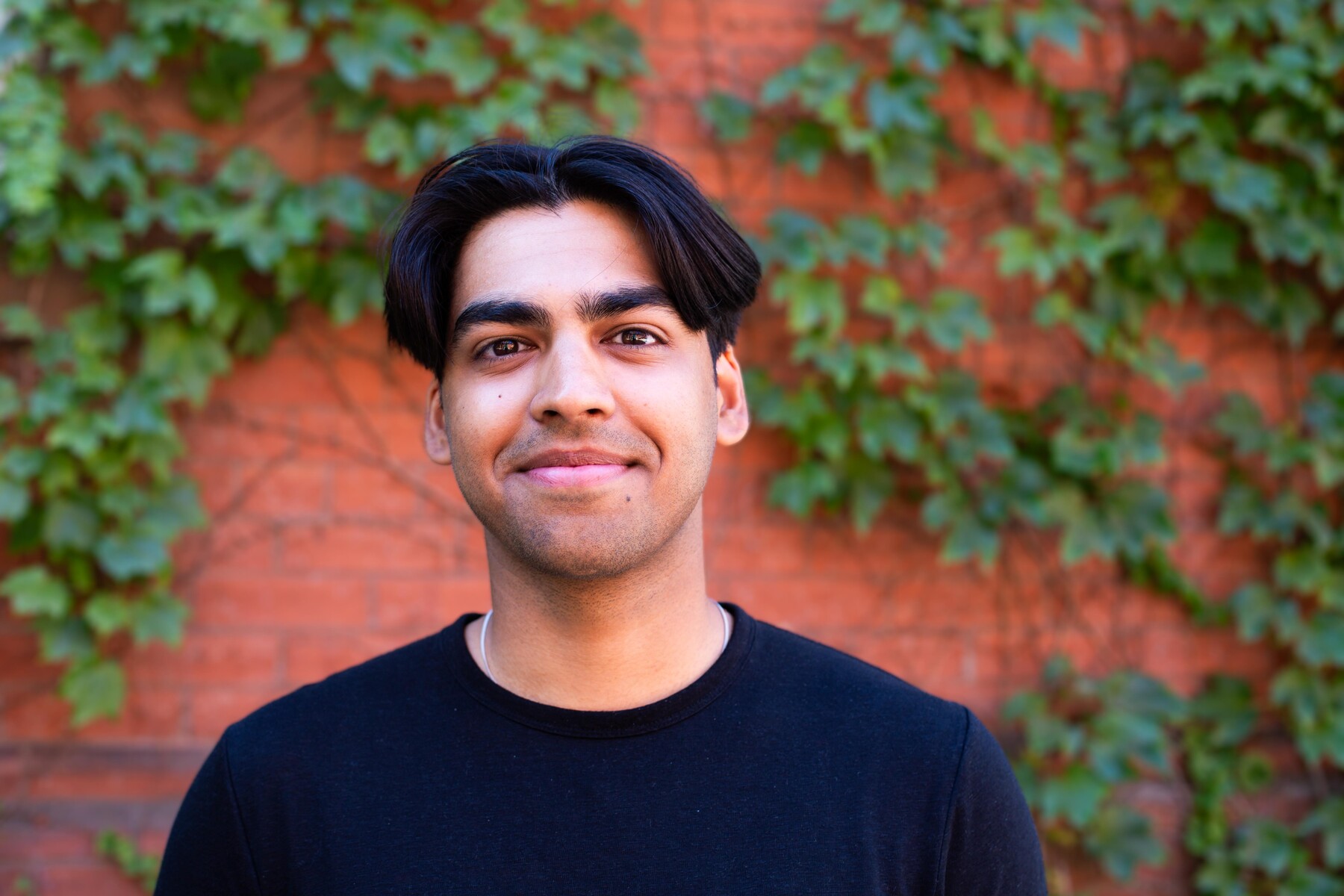
Namra Desai
I had known that I wanted to become a physician since high school, but I didn’t truly know why. In university, I spent some time to reflect on why I wanted to go down this path. So, I spent a lot of time thinking about the process of immigrating to Canada at a young age and my experiences with my family physician really stood out. I noticed that in a time of fear and uncertainty, his care provided us with a feeling of stability. By simply speaking to my parents and I in our mother tongue, he brought us some familiarity in an unknown land and provided such a strong sense of comfort. I now realize how much it meant to my family and I to have someone like him in our corner during a difficult time in our lives.
I had the privilege of working with individuals with disabilities as a RevvedUp exercise coach. Although we focused on exercise, much of our purpose was to provide a social connection and community environment for the participants. I connected with a lot of the people there, and found it very rewarding to be part of their journey, to motivate them when things got challenging and be their cheerleader. This experience made me realize that on top of the cool science and tech within medicine, there’s an unparalleled opportunity to be a companion to patients through life’s ebbs and flows.
When I think about aspects of medicine that I’m very passionate about, I immediately think of the communication and relationship between physician and patient. One of my main goals is to cultivate a patient care skillset centered in compassion, patience, and inclusivity, so that my interactions with patients make them feel comfortable, heard, and well cared for.
I’m also fascinated by medical innovation, and I would love to learn about and experience the processes that go into developing new devices, procedures, and instruments. I’m also really passionate about environmental sustainability within healthcare, as well as teaching and mentorship.
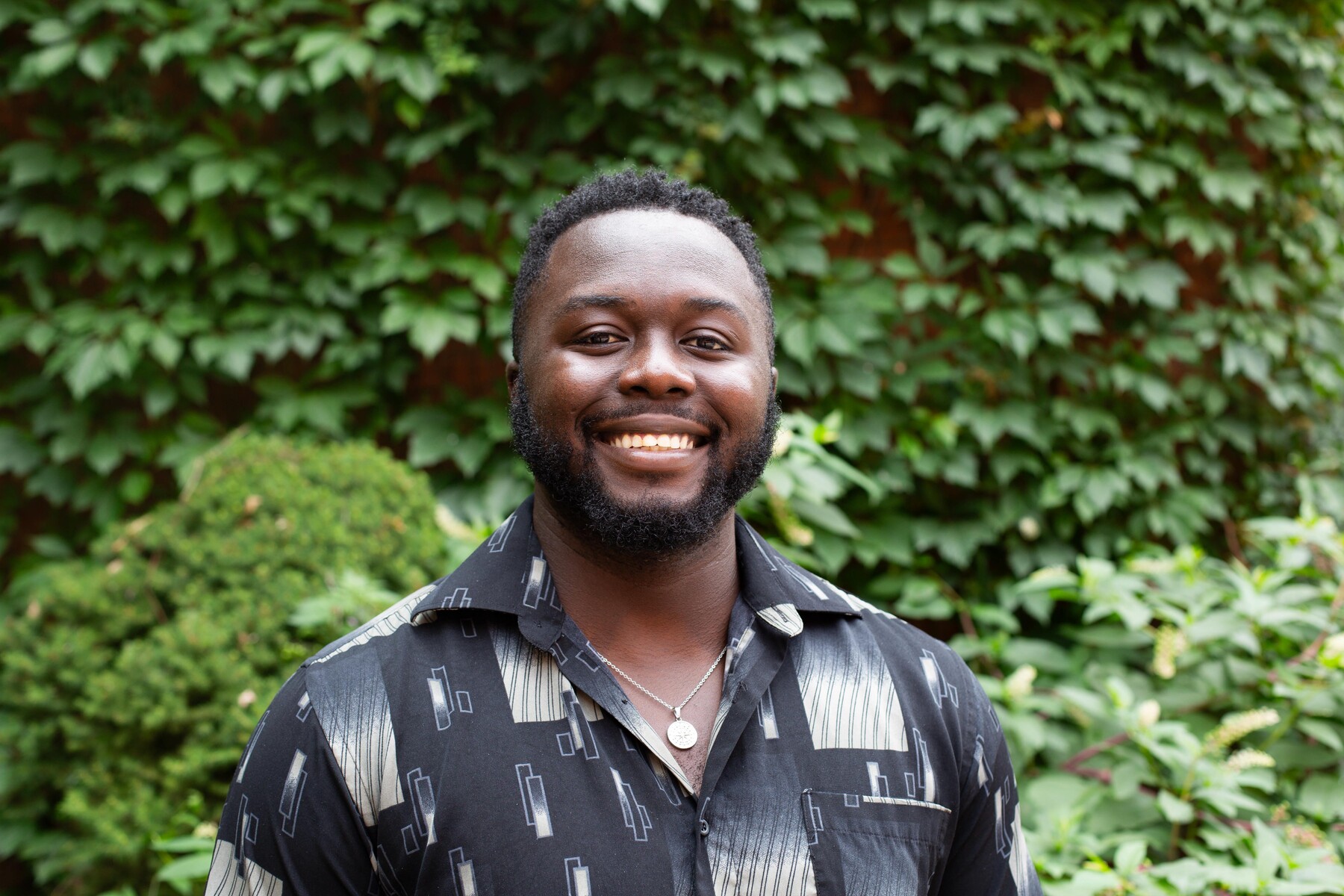
Paul Esemu-Ezewu
It wasn’t a specific lightbulb moment but rather a culmination of significant life events that fortified my interest in medicine. In high school, I participated in a summer research program for Black and Indigenous students and it was my first exposure to the world of medicine. I barely understood anything at the time, but to see the doctors and scientists in my lab speak so passionately and knowledgeably about their areas of expertise made me wonder what else there was to learn in the vast world of medicine. Fast forward six years, that interest only grew through my career as an x-ray technologist. After viewing something abnormal on an x-ray, I’m always curious to see what happens to the patient. “What kind of treatments did they receive? What was their diagnosis?” As a physician, one is almost completely embedded in the patient’s story and is able to make influential decisions regarding their care. The required expertise, knowledge and compassion to do that is what draws me to medicine.
I am very passionate about advocacy for marginalized groups in medicine. Access to healthcare should be a human right for all, with no group excluded. It also takes the voices from those marginalized groups to make a difference. As a young black man, having early exposure to the world of medicine through my summer research program was a huge driver in my journey to medicine and I am very grateful for that experience. As a future physician, I hope to be able to create those same avenues for aspiring students from marginalized backgrounds and inspire them to be that voice that the healthcare system in Canada needs.
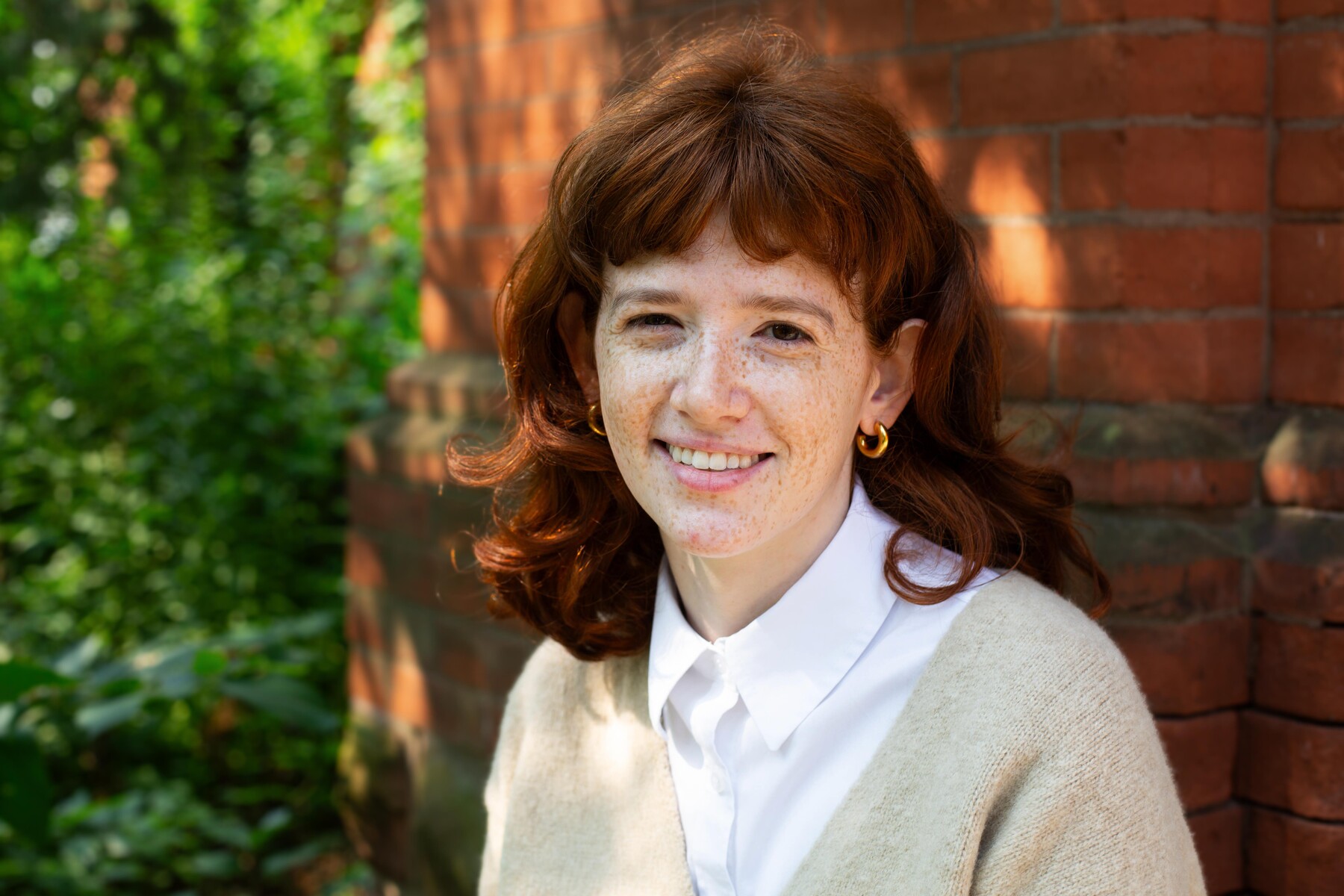
Eleanore Musick
As an undergraduate, I studied the history of medicine at McGill. I was fascinated by stories about North American physicians in the 19th century and the way that medicine evolved on this continent more broadly. I loved studying history, but by the end of my BA, I felt confident that I needed to practice medicine, not just understand its historical context. At the same time, I’ve always had a strong interest in and devotion to social justice. Medicine combines the things I’m most passionate about, namely, community aid and scientific advancement.
I’ve had a non-traditional path to medicine, so I’ve had about five years to develop a research career. After finishing my BA, I worked as a research coordinator in a pulmonary research clinic in Chicago, where I’m originally from. When the COVID-19 pandemic began, I was asked to join the Illinois Department of Public Health as a lab technician running PCR testing on COVID swabs. After that, I moved to Toronto to live with my girlfriend, and I joined the lab of Dr. Katherine Siminovitch here at U of T, where I worked on both bench-side research immunology projects and pharmaceutical development research.
In general, I’m very interested in the intersection of infectious disease and oncology. I’ve been doing a lot of reading recently about oncogenic viruses, or viruses that can cause cancer. Prevention and detection of these viruses represent a really interesting target in cancer care. I hope to contribute to medicine by providing attentive, research-informed, empathetic care to all my patients, and perform meaningful research on oncogenic viruses and oncology more broadly.
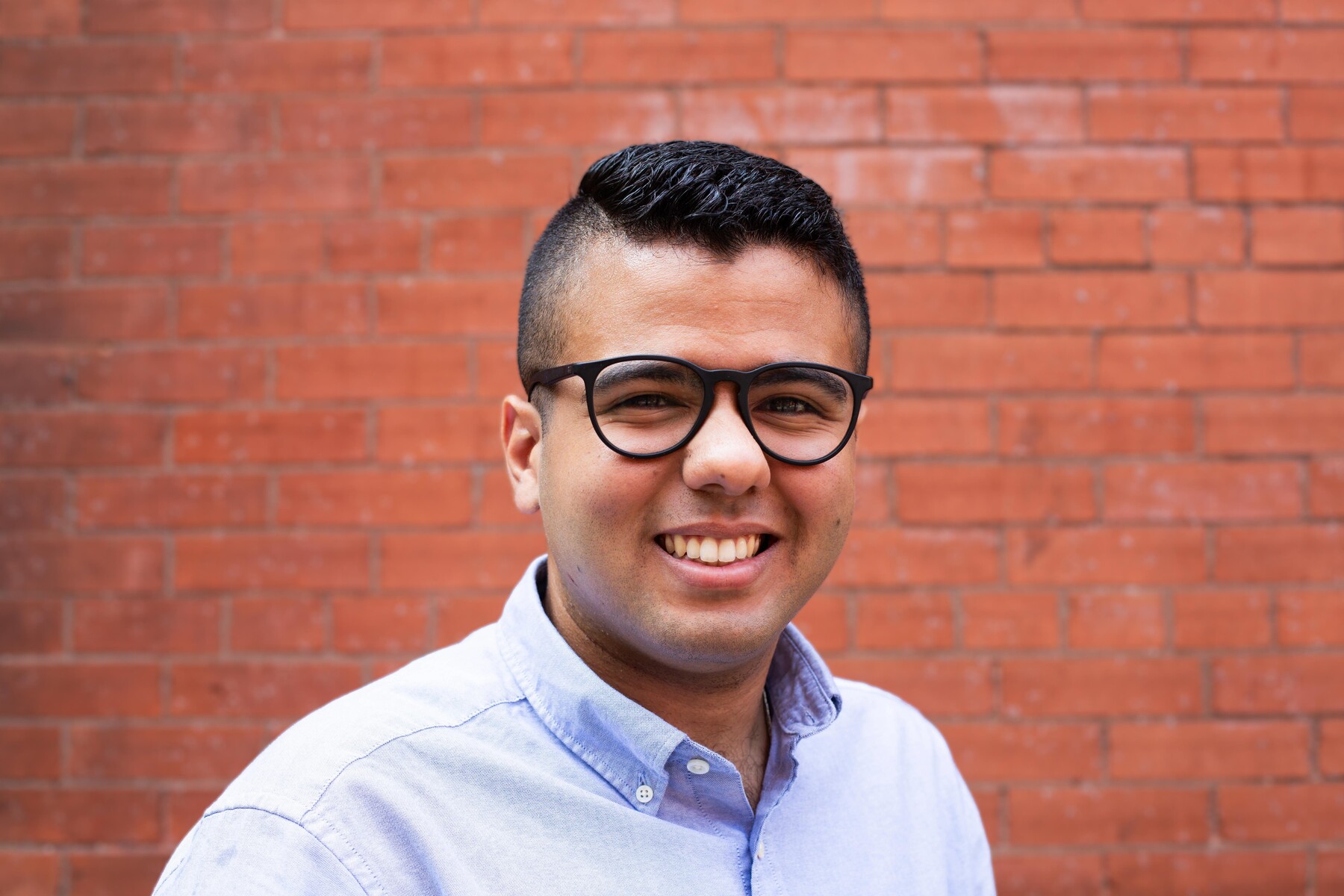
Mohamed Elsayed Elghobashy
I have always been fascinated by space. So much so that my favourite movie continues to be “Interstellar.” As unlikely a connection as this may seem, I found that this was my initial gateway to my interest in learning more about the human body. The interconnectedness of the body’s physiological mechanisms in health and disease seemed to be very similar to the way that everything in our universe is connected.
My interests took on a more nuanced form as I learned about how health and disease are much more than mere mechanisms in our bodies. The barriers that stood before people that are close to me as they navigated various types of chronic illnesses, revealed to me that health is as much about the impact of social barriers and marginalization as it is about physiological mechanisms. As I began seeing this applied in my involvements throughout high school and undergrad, the only pathway that encompassed my interests and enabled me to affect the level of change that I aspired for was becoming a medical doctor.
My passion for medicine primarily lies in bridging the gap between research and the practice of medicine to continue advancing our methods of improving people’s quality of life. To ensure that we continue advancing our methods of care and promote healthier populations, international collaboration in research and medical consultation is essential. Besides my passion for understanding more about the mechanisms by which the human body functions in health and disease, I would love to be further involved in creating these bridges that will advance our medical understanding further.
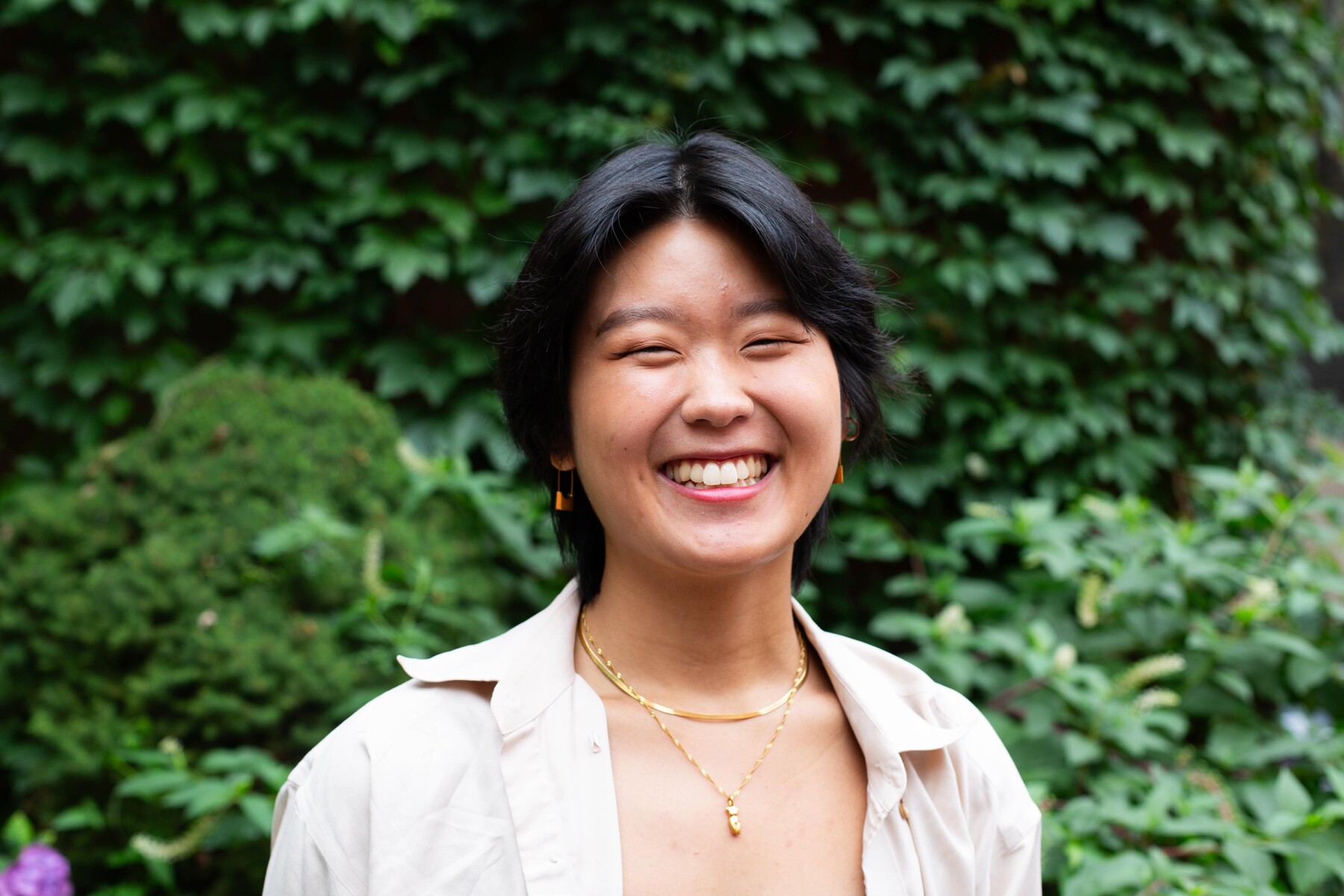
Susanna Soyun Lee
My path to medicine appears linear on the outside–those who I’ve grown up with will tell you I’ve said I wanted to be a doctor since I was 10 years-old–but it was actually a journey full of back-and-forths and self-growth. Ever since I was a kid, I struggled with perfectionism and wanted so badly to prove that I was smart enough and kind enough to pursue medicine. Through much introspection about whether medicine really was for me beyond the self-validation I thought it could bring me, I realized I had a passion for psychology and decided to pursue it as my undergraduate degree.
Throughout that degree, I was able to figure out what I loved to do in an environment that did not pressure me to pursue a specific outcome. I figured out that I am a complete psychology nerd who can’t get enough of learning about human thought and behaviour. I particularly loved any class that took a biopsychosocial approach to understanding people because it reinforced why it is so important to extend empathy to each person: behind each person’s behaviour is an unfathomably complex interplay of nature and nurture factors not just within themselves but also between their past generations.
As someone who grew up supporting multiple loved ones with mental health diagnoses and trauma, my background in psychology helped me understand what they were going through and help them more effectively. Whether it was validating a friend that the mental health symptom they thought only they had is commonly experienced by others, or helping a loved one process a new diagnosis, I had never felt so fulfilled as when I was able to support someone with their mental health.
I spent quite a bit of time debating between a career as a psychotherapist or physician. My budding passion for mental health advocacy, applying research through educating others, and the biopsychosocial approach, ultimately brought me back to medicine. I aspire to be a doctor who approaches her patients with the empathetic resolve my undergrad degree has gifted me and is just as attentive to my patients’ mental health as their physical health.
I am extremely fascinated by how a person’s psychology contributes to their physical health and experience of illness. I am not exactly sure how this will manifest in my medical career (as of right now, psychiatry or family medicine are the specialties I am interested in but I know that could change!) but I know wherever I go, I want to show patients that their stories, not just their physical symptoms, are important to me.
I also love that as a physician, you are a life-long learner. A comment I always get when I tell people I’m going to med school is, “I could never study that much” but in all honesty, I love being a student and am excited that even after I graduate from school, a significant part of my job will be to continue learning through keeping up with the latest research as well as through each patient encounter I have.